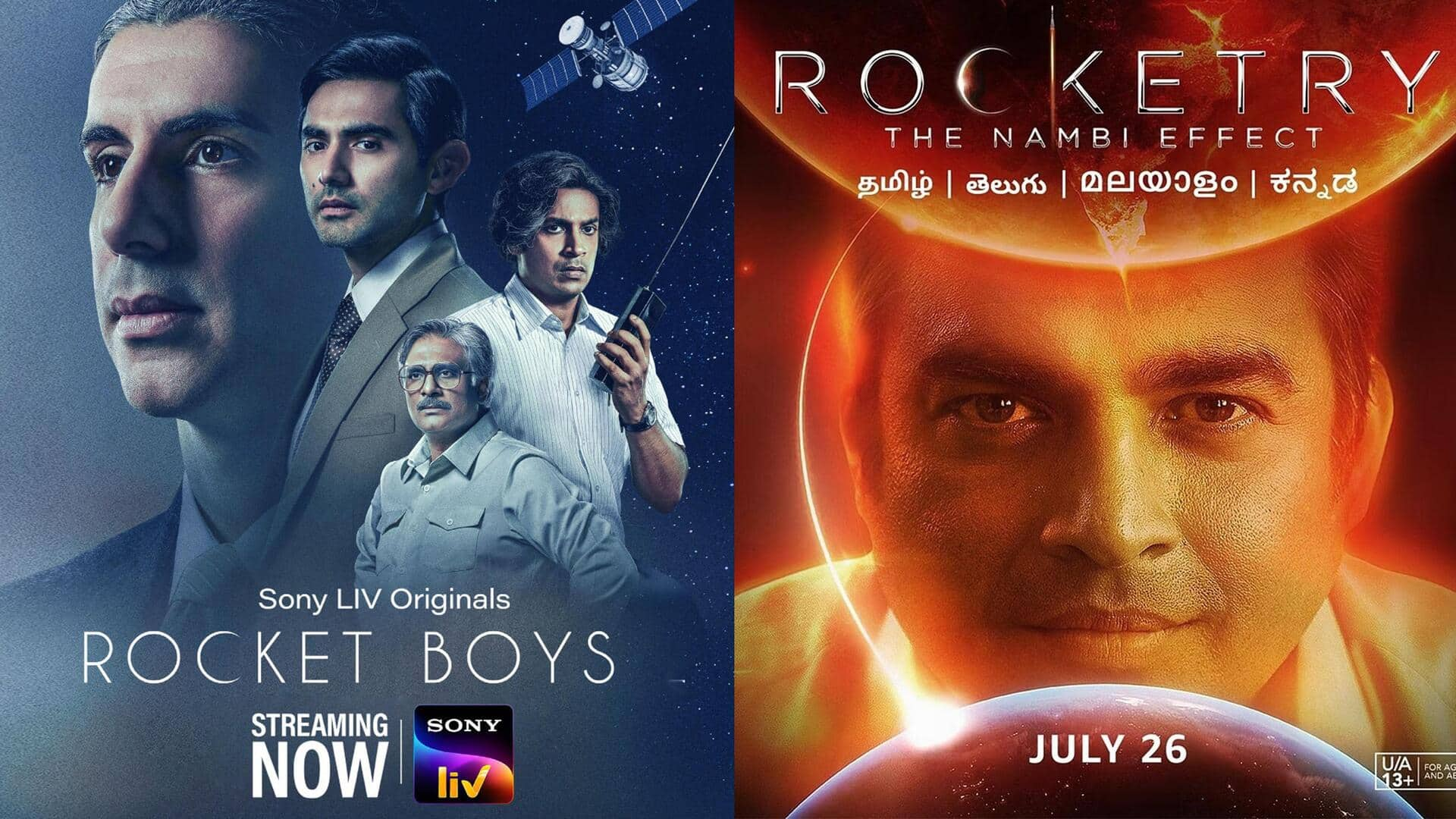
Chandrayaan-3 landing today: Movies/series on India's space missions
What's the story
The countdown for the soft landing of Chandrayaan-3 on the moon's surface on Wednesday (August 23) has already begun. As India gears up for the historic moment, here's a list of series and films that are inspired by either Indian scientists or India's space missions.
Ahead of the soft land, watch these films/series that will give you an insight into India's journey into space.
#1
'Rocket Boys'
Abhay Pannu's directorial series, Rocket Boys, is based on the lives of Indian scientists Homi J Bhabha and Dr. Vikram Sarabhai.
The series starred Jim Sarbh and Ishwaq Singh as Bhabha and Sarabhai, respectively, while also featuring Regina Cassandra and Saba Azad.
Considered an ode to India's science odyssey, the series was renewed for a second season which was released in March.
#2
'Rocketry: The Nambi Effect'
Rocketry: The Nambi Effect marked the directorial debut of actor R Madhavan. Released in 2022, the film is based on the life of former Indian Space Research Organisation (ISRO) scientist Nambi Narayanan who was falsely accused of espionage.
Madhavan played the titular role while also producing the movie. It was released in multiple languages, and featured cameos by Shah Rukh Khan and Suriya.
#3
'Mission Mangal'
Starring Akshay Kumar in the lead role, Mission Mangal is a 2019 film based on India's Mission to Mars, also known as M.O.M.
Directed by Jagan Shakti, the film featured an ensemble cast including Vidya Balan, Sonakshi Sinha, Taapsee Pannu, Nithya Menen, Kirti Kulhari, and Sharman Joshi.
A box office hit, it was backed by Kumar's production house.
#4
'Mangalyaan: India's Mission To Mars'
Though there's a Bollywood film based on ISRO's Mangalyaan mission, there's also a documentary by National Geographic which has archives of original footage from the day of the event.
Titled Mangalyaan: India's Mission to Mars, the documentary is available on Disney+ Hotstar.
The documentary covers the details of what was India's first mission to planet Mars- a journey of 650 million kilometers.